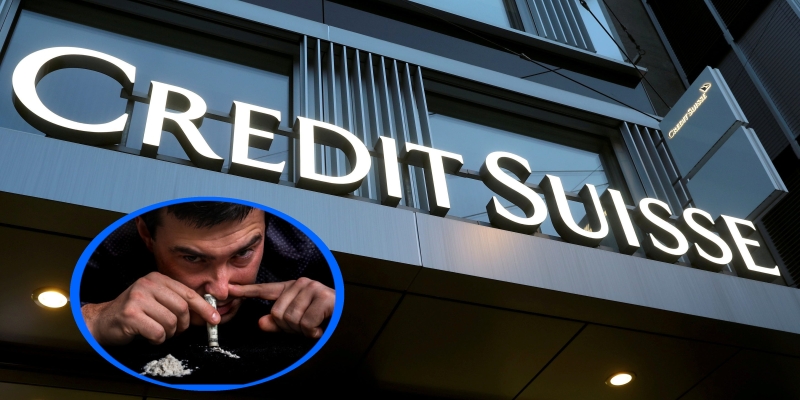For the first time, a major Swiss bank has been convicted in a money laundering case
The Federal Criminal Court has sentenced the big bank to a fine of CHF 2 million. In addition, there is a claim for compensation of 19 million francs. CS intends to appeal.
On Monday, the Federal Criminal Court in Bellinzona found Credit Suisse guilty - due to drastic shortcomings in the fight against money laundering. The bank has to pay a fine of 2 million Swiss francs. There is also a compensation claim by the court against CS of CHF 19 million. The amount corresponds to the assets that could not be confiscated by the authorities due to internal deficiencies of the bank. For the first time in Swiss criminal history, a major national bank has been convicted of deficiencies in its defense against money laundering.
According to the verdict, CS laundered funds from members of a drug cartel between 2004 and 2007. It is about the notorious Bulgarian drug gang of Evelin Banev - called the "Cocaine King".
After years of investigation, the federal prosecutor had accused two Bulgarian gang members. She also sued a former CS banker and a Julius Baer banker for money laundering. But she didn't leave it at that. The investigators accused the whole bank. This is because Credit Suisse had serious organizational shortcomings in its defense against money laundering.
The indictment is over 500 pages long. The investigators meticulously traced how easily the Bulgarian drug mafia could literally deposit suitcases full of cash at Credit Suisse on Paradeplatz. And how the gang later, long after they had come under suspicion, were able to withdraw millions again.
Now the Federal Criminal Court in Bellinzona has found the big bank guilty. According to the court, the Spanish, Bulgarian and Italian sentences against Banev that have already been handed down leave no room for doubt. He was actually the leader of a drug gang that started selling tons of cocaine in 2002 and chose to launder the money in specific banks - including Credit Suisse - because Bulgarian bankers worked there. Evelin Banev became a Credit Suisse client in 2004.
The former Credit Suisse wealth manager, who looked after Bulgarian clients, was also found guilty of aggravated money laundering and sentenced to 20 months in prison and a 129-day fine of CHF 250. Two Bulgarians living in Switzerland were accomplices of the criminal organization and were also convicted.
The court notes that the asset manager has known since June 2007 that her Bulgarian clients may have been linked to drug trafficking and two murders. However, she did not provide her superiors with sufficient information about this. And she allowed her clients to withdraw another 19 million euros from their accounts, apparently with the aim of evading investigation.
The Julius Baer banker, who had set up his own business to better serve his Bulgarian clients, was sentenced to 14 months' probation. He had accepted millions of euros that his Bulgarian customers brought with them in trolley suitcases when they traveled to Geneva.
With regard to Credit Suisse, the court holds that its executives acted passively. They tolerated the withdrawal of millions from the Bulgarians' property, even though the manager had partially informed them about ongoing criminal investigations against their customers.
However, the Federal Criminal Court also reprimanded the Federal Prosecutor's Office for being too slow. The “principle of acceleration” was violated in this case. Accordingly, the court only considered acts that happened after June 2007 – the others were too long ago. The penalties imposed have been reduced accordingly.
Bank wants to move judgment
The verdict is another setback for the big bank, which has always maintained its innocence and that of its employees in this case. According to a statement, the bank wants to appeal the decision. "Credit Suisse Group takes note of the decision of the Federal Criminal Court to impose a fine of CHF 2 million on Credit Suisse AG for certain historical organizational deficiencies."
Credit Suisse continuously tests its anti-money laundering defenses and has strengthened them over time in line with ongoing regulatory developments. "Compliant business growth while complying with legal and regulatory requirements is of crucial importance for Credit Suisse," said the bank's statement.
However, Tamedia's research desk has analyzed various such promises made by the big bank over the past 20 years. CS always promised to tighten supervision, and there were always others

Comments to this:








